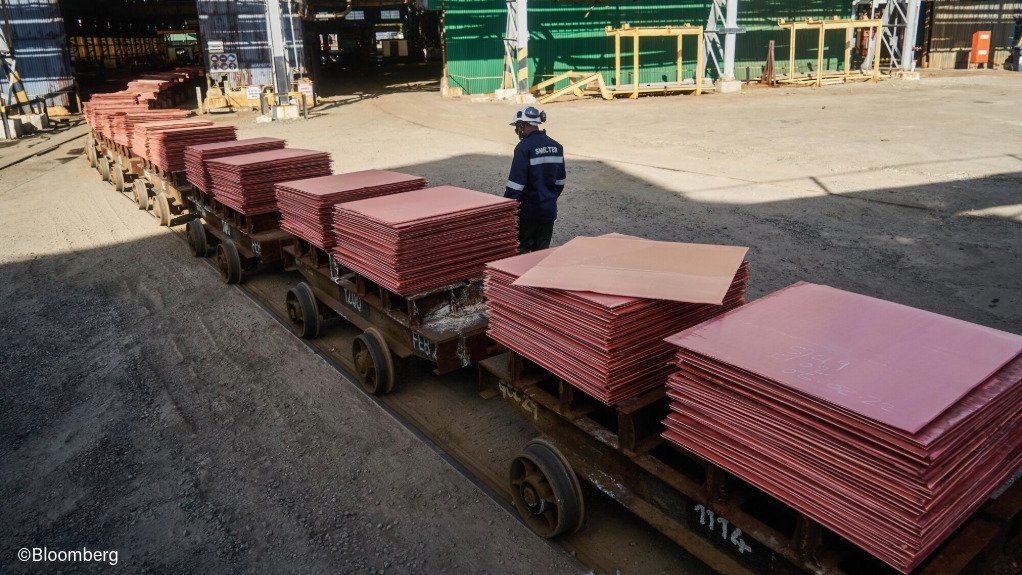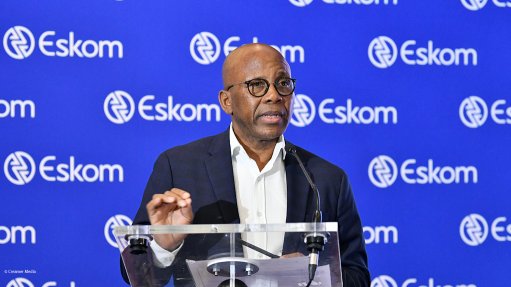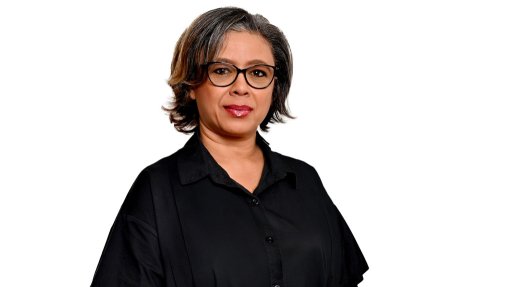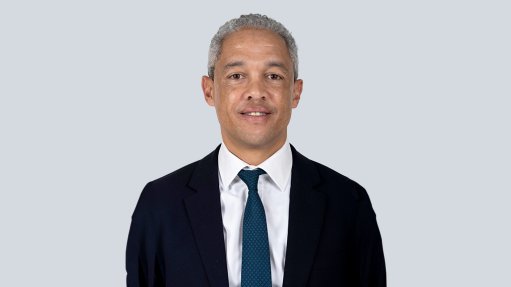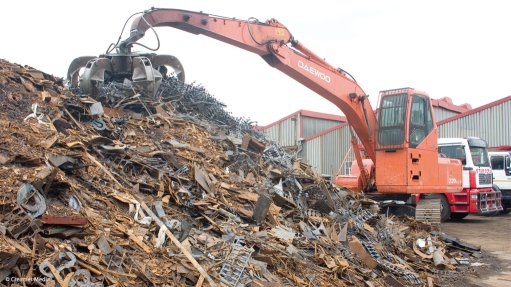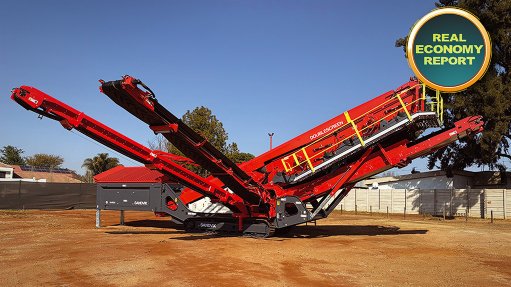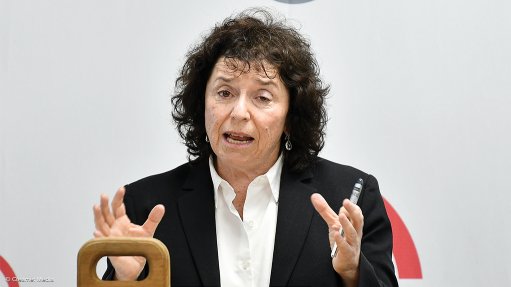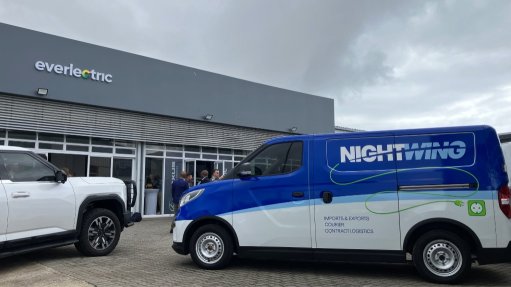Africa's big copper countries set their sights on the profits of trade
Africa's biggest copper producers, the Democratic Republic of Congo and Zambia, are working on deals to gain exposure to metal trading as a demand surge linked to artificial intelligence and the shift to greener energy promises hefty profits.
Metals trading has long been the preserve of international trading houses, such as Glencore.
Congo and Zambia, which together represent more than 13% of global copper supply, have over the last year increased their focus on securing a share of the mined metal that they too can trade for profit.
Congo state-owned miner Gecamines is close to finalising a deal with Glencore to secure an allocation of about 51,000 metric tons of metal from Kamoto Copper Company (KCC), two sources familiar with the details told Reuters. They did not indicate any date for finalising the agreement.
Glencore declined to comment.
Gecamines owns 25% of KCC and is negotiating for an allocation of the metal equivalent to its shareholding in the mine, the sources said.
Gecamines has already been trading almost 100 000 tons of copper, equal to its 20% shareholding in Tenke Fungurume Mining after reaching a deal with Chinese owner CMOC Group in July 2023.
Gecamines Chairman Robert Lukama did not immediately respond to Reuters' questions.
The Congolese government is meanwhile seeking greater control over the sale of the metals in projects where it holds a stake, one of the sources said.
Congo owns 20% in Ivanhoe's Kamoa-Kakula mine, which aims to produce 520 000 t to 580 000 tons of copper this year.
Ivanhoe declined to comment.
Gecamines also aims to secure more metal from its shareholding in producers including Zijin Group, the source said.
All the sources asked not to be named because they were not authorised to speak publicly.
CAPE TOWN INDABA
The quest for copper is likely to be keenly debated when global investors, executives and government officials gather at this week's Mining Indaba conference in Cape Town.
African governments' efforts to maximise their share of profits, which historically have been concentrated in the hands of international companies, will also be a sensitive issue following events this month in Mali, where gold mining executives were arrested to force compliance with new mining rules.
The potential profits of copper could be huge as demand is stoked by its uses in AI, electric vehicles and the transition to greener power, while new supplies are hard to find, increasing the bargaining power of the resource-holders.
Investors' perception of Congo and Zambia, which straddle the African Copperbelt, is that they are difficult places to invest, hence Verisk Maplecroft's Resource Nationalism Index categorises them as high risk.
Traders and some analysts said joint ventures had the potential to offer mutual benefits and to defuse tensions as the African governments seek expertise while firms such as Swiss trader Mercuria, previously less established in Africa than some houses, seek a greater presence on the continent.
Zambia and Mercuria in December set up a jointly owned copper trading unit that has started negotiations with almost all the producers in the country, two separate sources told Reuters.
Mercuria has set aside an initial budget of about $500 million to buy copper from local producers, backed by additional lines of credit as more metal supply becomes available, one of the sources said.
Mercuria did not respond to emailed questions.
Zambia plans to start by buying copper on commercial terms, before negotiating for physical metal equal to its shareholding, instead of just relying on dividend payouts for profits as it has until now, the two sources said.
Zambia owns between 10% and 20% in projects involving local units of Vedanta Resources, First Quantum Minerals and Barrick Gold through state firm ZCCM-IH.
NO SILVER BULLETS AND DOUBTS OVER DIVIDENDS
As a means to reward resource-holding governments, dividends have generated friction as governments have questioned whether the amounts paid to them are fair.
Indigo Ellis, managing director strategy and risk advisory at JS Held, said dividends based on the volume of metal mined could help.
She also said government involvement in trade could give them the influence over price they crave.
"Government-implemented trading builds up scope for locally controlled value addition and thereby increases the government’s influence over the market for copper or cobalt – which is the ultimate aim," she said.
But for all the activity, many analysts are doubtful governments will make easy profits from trade.
Hugo Brennan, head of EMEA Research at risk intelligence company Verisk Maplecroft, said shifting towards metals trading was as unlikely as dividends to be a silver bullet.
"One can foresee disputes around the division of mineral production and who trades with whom as readily as those that have previously emerged around dividend payments," he said.
Others said the risk was that private investors would be deterred.
"Trying to capture greater market share from your own sales, how much do you really benefit from that and how much are you going to upset the investors," Ben Davis, analyst at RBC Capital Markets, said.
Comments
Press Office
Announcements
What's On
Subscribe to improve your user experience...
Option 1 (equivalent of R125 a month):
Receive a weekly copy of Creamer Media's Engineering News & Mining Weekly magazine
(print copy for those in South Africa and e-magazine for those outside of South Africa)
Receive daily email newsletters
Access to full search results
Access archive of magazine back copies
Access to Projects in Progress
Access to ONE Research Report of your choice in PDF format
Option 2 (equivalent of R375 a month):
All benefits from Option 1
PLUS
Access to Creamer Media's Research Channel Africa for ALL Research Reports, in PDF format, on various industrial and mining sectors
including Electricity; Water; Energy Transition; Hydrogen; Roads, Rail and Ports; Coal; Gold; Platinum; Battery Metals; etc.
Already a subscriber?
Forgotten your password?
Receive weekly copy of Creamer Media's Engineering News & Mining Weekly magazine (print copy for those in South Africa and e-magazine for those outside of South Africa)
➕
Recieve daily email newsletters
➕
Access to full search results
➕
Access archive of magazine back copies
➕
Access to Projects in Progress
➕
Access to ONE Research Report of your choice in PDF format
RESEARCH CHANNEL AFRICA
R4500 (equivalent of R375 a month)
SUBSCRIBEAll benefits from Option 1
➕
Access to Creamer Media's Research Channel Africa for ALL Research Reports on various industrial and mining sectors, in PDF format, including on:
Electricity
➕
Water
➕
Energy Transition
➕
Hydrogen
➕
Roads, Rail and Ports
➕
Coal
➕
Gold
➕
Platinum
➕
Battery Metals
➕
etc.
Receive all benefits from Option 1 or Option 2 delivered to numerous people at your company
➕
Multiple User names and Passwords for simultaneous log-ins
➕
Intranet integration access to all in your organisation



